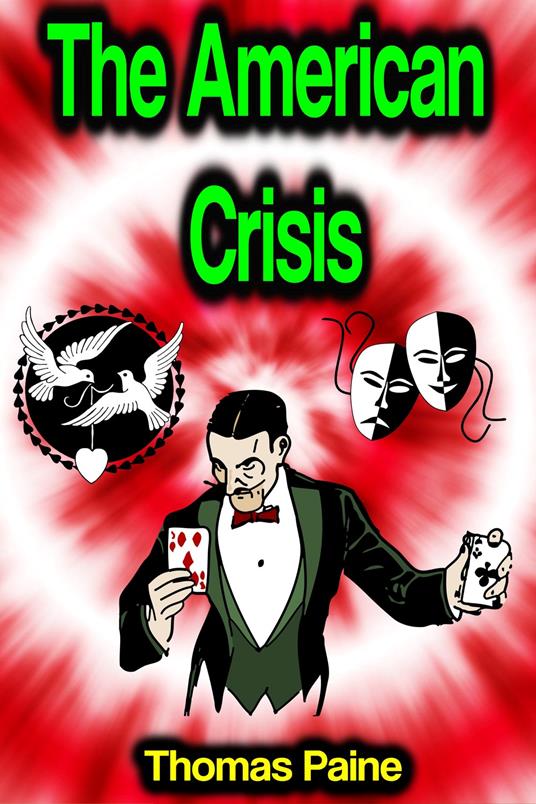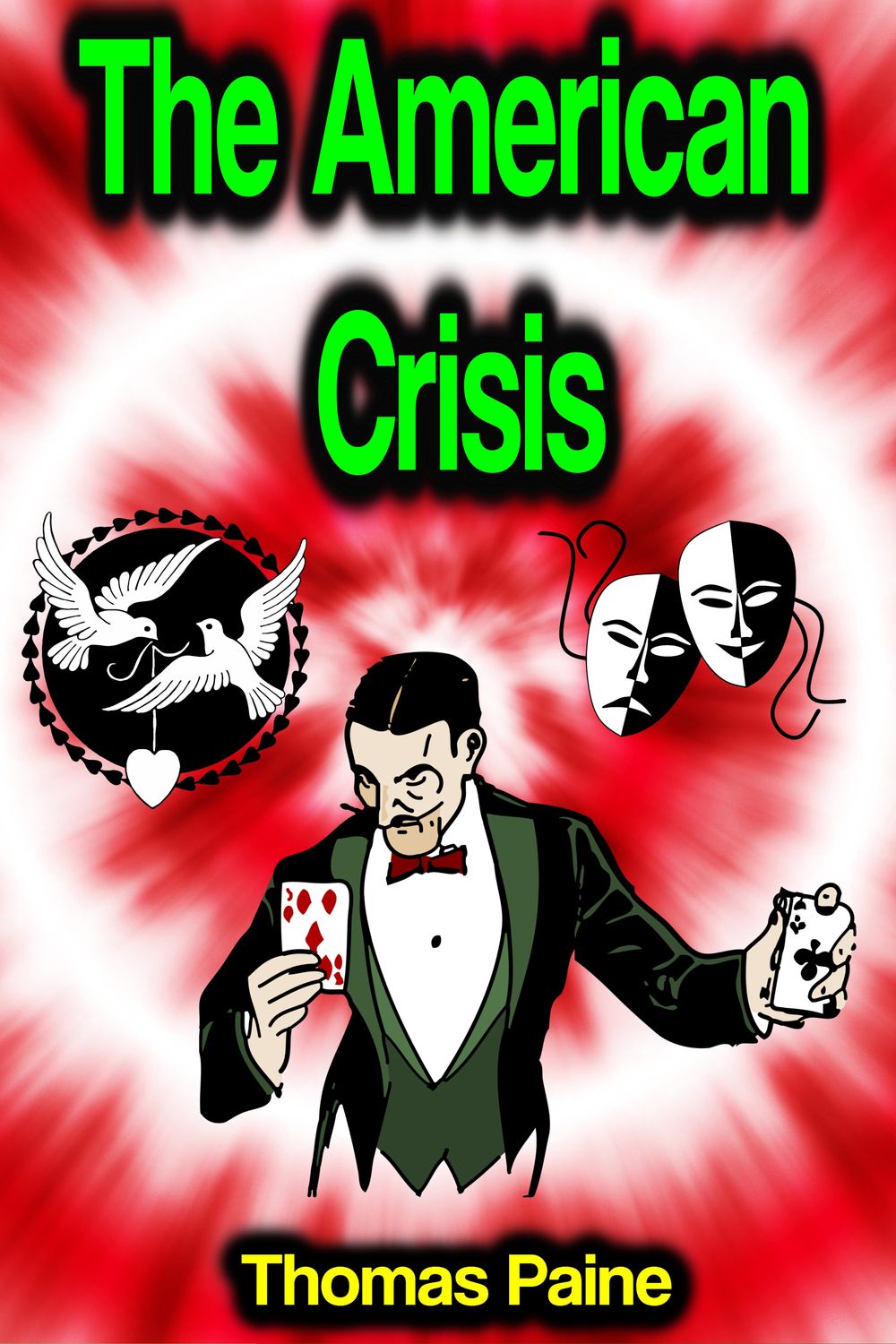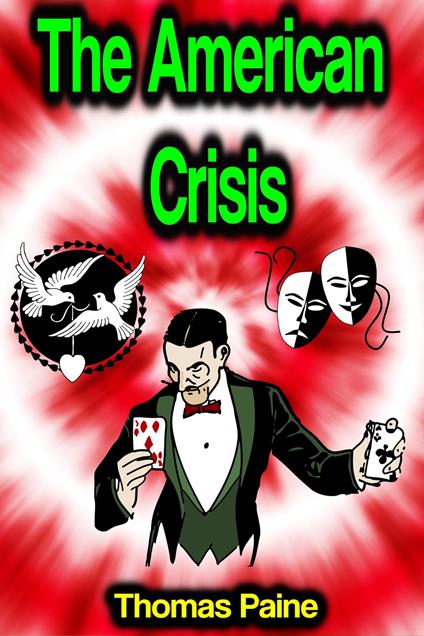The American Crisis
The American Crisis - Thomas Paine - The American Crisis, or simply The Crisis, is a pamphlet series by eighteenth-century Enlightenment philosopher and author Thomas Paine, originally published from 1776 to 1783 during the American Revolution. Thirteen numbered pamphlets were published between 1776 and 1777, with three additional pamphlets released between 1777 and 1783. The first of the pamphlets was published in The Pennsylvania Journal on December 19, 1776. Paine signed the pamphlets with the pseudonym, "Common Sense". The pamphlets were contemporaneous with early parts of the American Revolution, when colonists needed inspiring works. The American Crisis series was used to "recharge the revolutionary cause." Paine, like many other politicians and scholars, knew that the colonists were not going to support the American Revolutionary War without proper reason to do so. Written in a language that the common person could understand, they represented Paine's liberal philosophy. Paine also used references to God, saying that a war against Great Britain would be a war with the support of God. Paine's writings bolstered the morale of the American colonists, appealed to the British people's consideration of the war, clarified the issues at stake in the war, and denounced the advocates of a negotiated peace. The first volume famously begins: "These are the times that try men's souls." Winter 1776 was a time of need in the colonies, considering Philadelphia and the entire rebel American cause were on the verge of death and the revolution was still viewed as an unsteady prospect. Paine wanted to enable the distraught patriots to stand, to persevere, and to fight for an American victory. Paine published the first Crisis paper on December 19th. Along with the patriotic nature of The American Crisis, the series of papers displayed Paine's strong deist beliefs, inciting the laity with suggestions that the British are trying to assume powers that only God should have. Paine saw the British political and military maneuvers in the colonies as "impious; for so unlimited a power can belong only to God." Paine stated that he believed that God supported the cause of the American colonists, "that God Almighty will not give up a people to military destruction, or leave them unsupportedly to perish, who have so earnestly and so repeatedly sought to avoid the calamities of war, by every decent method which wisdom could invent". Paine goes to great lengths to state that American colonists do not lack force but "a proper application of that force," implying throughout that an extended war could lead only to defeat unless a stable army was composed not of militia but of trained professionals. Paine maintains a positive view overall, hoping that the American crisis could be resolved quickly "for though the flame of liberty may sometimes cease to shine, the coal can never expire. and goes on to state that Great Britain has no right to invade the colonies, saying that it is a power belonging "only to God. Paine also asserts that "if being bound in that manner is not slavery, then there is not such a thing as slavery on earth." Paine obviously believes that Great Britain is essentially trying to enslave the American colonists. He then opines a little about how the panicking of the sudden Revolutionary War has both hindered and helped the colonists.
-
Autore:
-
Anno edizione:2022
-
Editore:
-
Formato:
-
Lingua:Inglese
Formato:
Gli eBook venduti da Feltrinelli.it sono in formato ePub e possono essere protetti da Adobe DRM. In caso di download di un file protetto da DRM si otterrà un file in formato .acs, (Adobe Content Server Message), che dovrà essere aperto tramite Adobe Digital Editions e autorizzato tramite un account Adobe, prima di poter essere letto su pc o trasferito su dispositivi compatibili.
Cloud:
Gli eBook venduti da Feltrinelli.it sono sincronizzati automaticamente su tutti i client di lettura Kobo successivamente all’acquisto. Grazie al Cloud Kobo i progressi di lettura, le note, le evidenziazioni vengono salvati e sincronizzati automaticamente su tutti i dispositivi e le APP di lettura Kobo utilizzati per la lettura.
Clicca qui per sapere come scaricare gli ebook utilizzando un pc con sistema operativo Windows




